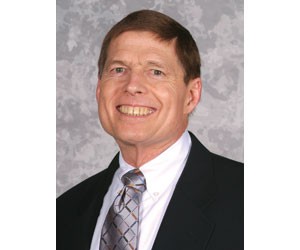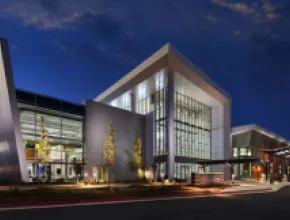After 26 years of service, the man synonymous with IACC—Tom Bolman, executive vice president of the association—is getting ready to retire.
Slated to end his tenure at the end of the year, Bolman was instrumental in the growth of both IACC and the “conference center concept” in North America. He also led the association’s development of both a global and online presence.
Meetings Focus caught up with the man who arguably has the heartiest laugh in the business.
Meetings Focus East: What was your background before joining IACC and what sort of preconceived notions did you have about conference centers before you started working in that segment?
Tom Bolman: Prior to IACC, I worked at the Columbus (Ohio) CVB and as DOSM of Stouffer Hotels in Dayton, Ohio; Cleveland; and St. Louis. I did not know what a conference center was before joining IACC, so I had no “preconceived notions.”
MFE: Has anyone been a mentor to you in your career?
Bolman: John Wilderman, who I knew and then worked for when I was with Stouffer Hotels, [and who] later became active in IACC. When I was looking for something new in 1986, John told me about the IACC opportunity and recommended me for the executive director position.
MFE: What is the basic, core message about why IACC-certified conference centers are a good venue for a meeting that you would deliver to a meeting planner?
Bolman: IACC conference centers are purpose-built for meetings and provide the most productive meeting experience available anywhere.
MFE: What has the North American conference center segment learned from European conference centers?
Bolman: Americans have been inspired time and time again by the unique meeting environments they have in Europe (old manor homes and estates, theaters, even a tree house!) and their ability to produce exceptional meeting experiences in these environments. Because Europeans tend to be purists, the lines of differentiation between conference centers and hotels are much bolder than in the Americas.
MFE: What challenges still face the conference center segment?
Bolman: The vast majority of our customers are part-time planners and constantly changing, so our biggest challenge continues to be to define and promote the ‘IACC Meeting Experience’ and the unique benefits that conference centers offer to this market.
MFE: In your history with IACC, was there any membership criteria standard that caused a significant amount of pushback but was finally adopted?
Bolman: IACC always has believed that its members should provide everything that most customers need as part of the Complete Meeting Package. I remember that we got major pushback when we told members that their package must include LCD projectors, because for many properties this represented a substantial revenue stream. It took a few years before everyone saw the light, and now it’s no longer an issue.
MFE: What do you think the conference center experience of the future will be like?
Bolman: Meetings will be much more casual and unstructured, and will tend to be “hybrids” [virtual/live event combinations]. They will incorporate social media to build community and begin learning before the conference and extend it afterwards.
They will be multigenerational and multicultural so there will be elements that focus on various learning styles. These things are already happening but they will gain steam over the next decade. I don’t think we can even imagine what meetings will look like more than 10 years out with the continual explosion of new technology!
MFE: What is it about IACC and the conference center industry, and your involvement in it, that gives you the ‘warm-fuzzies?’
Bolman: The people, the places, the memories…will be with me for the rest of my life. IACC is a unique community of professionals who are also specialists in the larger hospitality industry. They enjoy and take great pride in what they do and they also like to have fun. I’ve found this to be true in the Americas, Europe, Asia or Australia.
MFE: What are your post-IACC plans?
Bolman: I have a large network of friends and am involved with a number of nonprofit organizations. I look forward to increasing my work for social justice when I no longer have a full-time job.
MFE: What will your legacy be?
Bolman: My legacy is having hired one of the most talented and professional staffs in the business that will continue to provide outstanding service to IACC members long after I’m gone.







